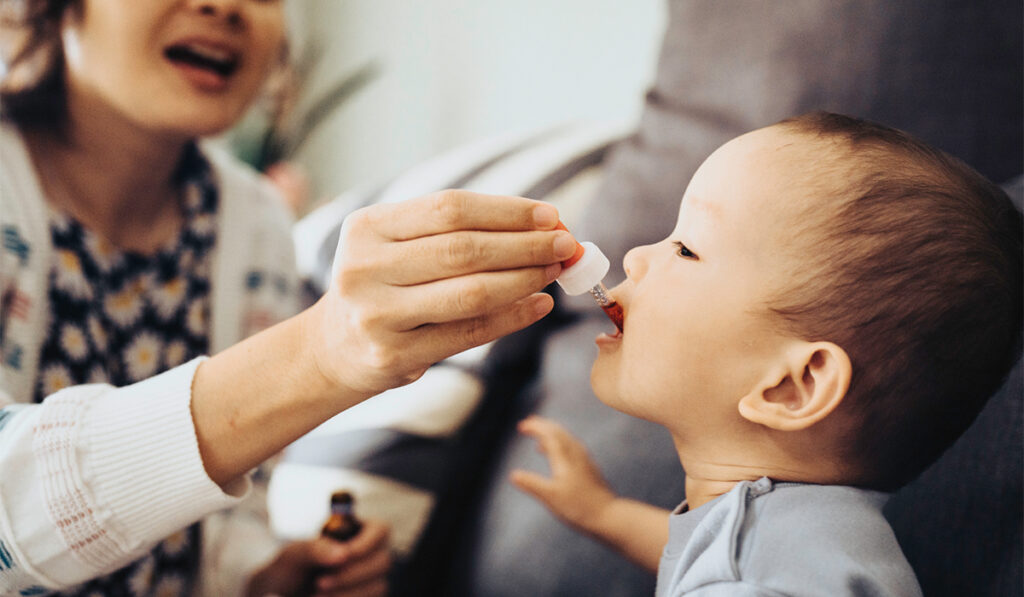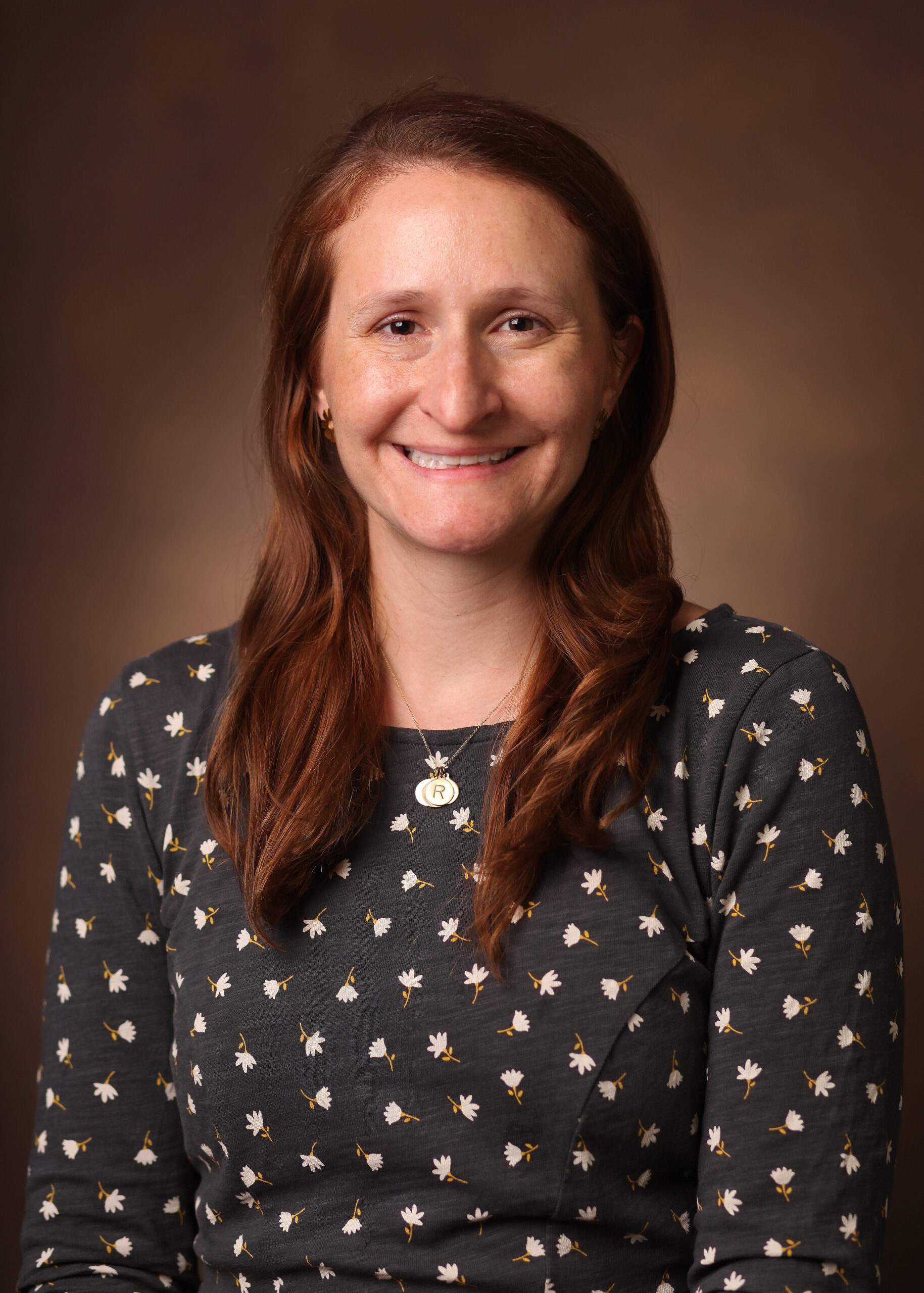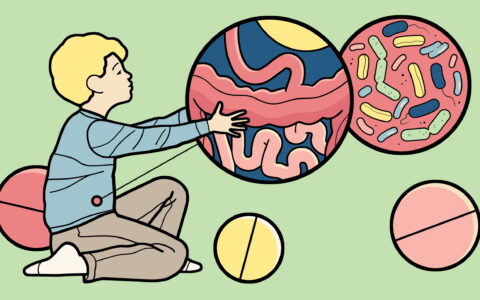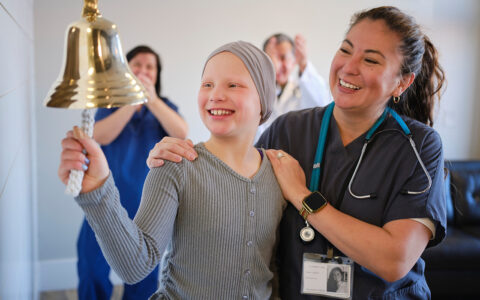Enhanced training for caregivers on how to administer liquid medication upon their child’s hospital discharge may cut subsequent caregiver medication errors by half, a randomized controlled study at Vanderbilt University Medical Center shows.
Parents returning home after their child’s in-patient stay at Vanderbilt or many other hospitals across the country typically receive printed discharge instructions about the child’s medications generated through an electronic records system such as Epic, said Alison Carroll, M.D., an assistant professor of pediatrics at Monroe Carell Jr. Children’s Hospital at Vanderbilt and study author.
“We know from prior studies that if we show the parents how to do a task, like drawing up a medication into a syringe, and then they show it back to us, their comprehension improves.”
“It’s usually a list of prescriptions and generic discharge instructions that the bedside nurse goes over with them,” Carroll explained.
Her work shows taking training further, with a one-on-one conversation and practice, yields better results.
“We know from prior studies that if we show the parents how to do a task, like drawing up a medication into a syringe, and then they show it back to us, their comprehension improves, which can reduce medication errors and harms,” she said.
Closer Look at Pediatric Errors
While prior research has studied the effects of enhanced, participatory training in the administration of medicines in both outpatient and emergency room settings, hers is the first randomized controlled study of this type done with hospitalized children, Carroll said.
Research in other settings has demonstrated that 40 to 50 percent of caregivers make mistakes when they’re giving medicine to children, said Carroll, whose interest in pediatric inpatients has also led her to explore how resources in a child’s neighborhood affect their likelihood of their being hospitalized.
Dosing Errors Occur Often
“One out-of-hospital medication error occurs every eight minutes among kids aged six or younger, with liquid medications accounting for most of those errors. Administering liquid medicines is not straightforward,” Carroll said.
Her paper mentioned potential pitfalls for parents – including calculating dosing based on the child’s weight, dealing with varying concentrations of a medication, or using nonstandard measuring instruments, such as kitchen spoons.
“Even if the parent is using the proper dosing tool, the syringe, they need to learn where to actually stop drawing up the liquid; and then to give it on time, the right number of times,” she said.
Dosing Errors Nearly Halved
In her study, done between June 2021 and August 2022, 150 caregivers for children aged six or younger were randomized to receive either standard counseling on the prescribed liquid medication or the standard counseling plus more intense, hands-on training. A third of the caregivers who received intense, hands-on training committed a dosing error, which compares to 54 percent in the standard counseling arm. Thus, the intervention reduced the error rate by nearly half.
“We also used ‘teach back,’ where the parents repeat something we tell them in their own words, and ‘show back,’ where they demonstrate the skill of drawing up a liquid medication to us.”
The evidence-based enhanced training deployed in the study involved a medication bottle full of water. Carroll demonstrated to caregivers how to draw up liquid medication into a syringe.
“Then I’d ask caregivers to do it themselves, and make sure they were doing it exactly correctly,” she said. “That was really the intervention, and it was on top of the usual instructions that parents would get.”
Instructions using plain language paired with visual images were integrated into the lesson.
“We also used ‘teach back,’ where the parents repeat something we tell them in their own words, and ‘show back,’ where they demonstrate the skill of drawing up a liquid medication to us.”
Every Needed Detail Made Clear
Each of the caregivers was guided through a set of comprehensive, clearly written materials, which included an image of the oral dosing syringe filled to the correct level.
“We gave them a grid with all the key facts: the drug name, generic and brand name, dose, frequency, total duration time, common side effects and storage instructions. None of these things are fancy,” Carroll said.
“Many caregivers voiced appreciation for the enhanced training.”
This information also clearly stated the timing for the first dose after hospital discharge, because parents need to know when — as well as how – to take over the patient’s care once they leave the hospital, she said.
“It’s a big transition, going from having trained medical professionals, pharmacists and nurses and doctors being the ones to control all that – to handing it over to the family and asking them to be in charge,” Carroll said. “The parents are also sleep deprived, stressed, and worried, making the task even harder.”
Many caregivers voiced appreciation for the enhanced training.
“Often, they’d say that no one has ever shown them how to do use the syringe, even though they’d had questions about it,” Carroll said.
“We should have a set of training tools on each unit, and we should be doing this for all caregivers.”
The intervention took about five minutes and nine seconds.
“Five minutes is not a lot of time. We should have a set of training tools on each unit, and we should be doing this for all caregivers,” she said. She added that “show back” seems to matter most but we need to do more studies to better understand which components of the intervention are most beneficial.
Benefits Seen at All Health-Literacy Levels
The caregivers involved in the study were categorized as having “limited health literacy” or “adequate health literacy.”
Those with lower health literacy made more dosing errors in both arms of the study.
“However, the magnitude of the benefit conferred by the intervention was similar in both groups, suggesting that the intervention is likely useful for all caregivers, regardless of health literacy,” Carroll wrote. “The findings also underscore the vulnerability of those with lower health literacy to medication dosing errors.”
“If you put me in the hospital with my daughter when she was sick and I wasn’t sleeping, I probably wouldn’t retain much information, and my comprehension wouldn’t be so good in that state,” Carroll said.






